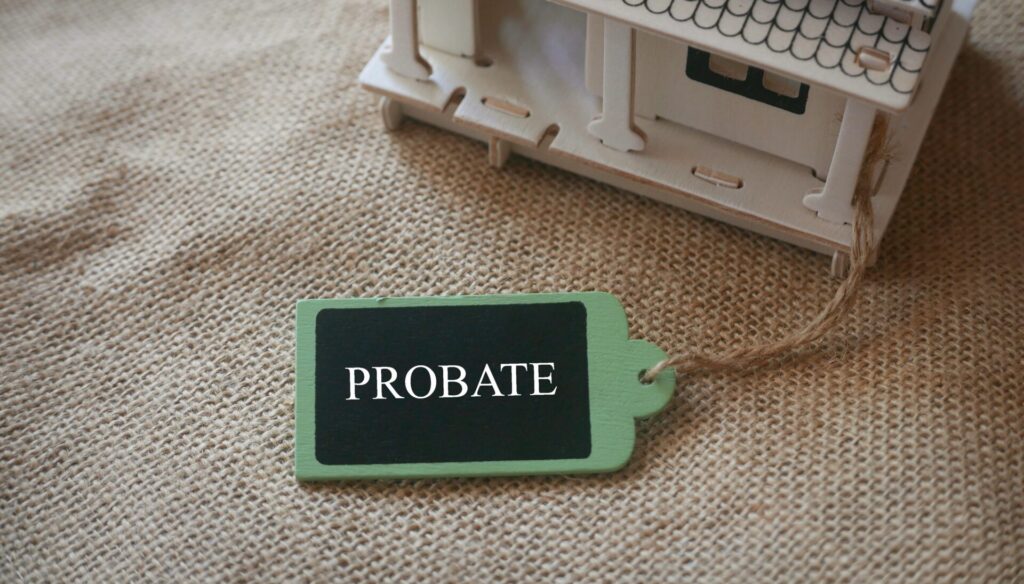In the realm of property ownership and estate management, the term “Muniment of Title” may be unfamiliar to many. However, understanding this legal concept can unlock a world of benefits and streamline the process of transferring property ownership after the passing of a loved one. A Muniment of Title offers a simplified and cost-effective alternative to the traditional probate process, making it an invaluable tool for property owners and their families. In this comprehensive guide, we’ll explore the intricacies of Muniment of Title, its advantages, and the essential steps to leverage this powerful legal instrument.
Understanding Muniment of Title

A Muniment of Title is a legal document that serves as evidence of ownership and provides a streamlined method for transferring property ownership upon the death of the owner. It is a simplified probate process that allows the transfer of property to the rightful heirs or beneficiaries without the need for a full probate court proceeding.
This process is particularly beneficial when the deceased’s estate consists primarily of real estate or other titled property, and there are no outstanding debts or complex legal issues that require court supervision.
What is the primary purpose of a Muniment of Title?
The primary purpose of a Muniment of Title is to provide a simplified and cost-effective method for transferring property ownership to the rightful heirs or beneficiaries upon the death of the owner, without the need for a full probate court proceeding.
Eligibility and Requirements

To be eligible for a Muniment of Title, certain requirements must be met. First and foremost, the deceased must have left a valid will that clearly identifies the beneficiaries or heirs who will inherit the property.
Additionally, the estate must not have any outstanding debts or liabilities that would require court supervision for resolution. The property in question must also be free of any liens, mortgages, or other encumbrances that could complicate the transfer of ownership.
In some cases, a Muniment of Title may not be appropriate if there are potential legal challenges or disputes among heirs or beneficiaries regarding the distribution of assets.
Benefits of a Muniment of Title

There are numerous benefits to pursuing a Muniment of Title for property owners and their families. One of the most significant advantages is the cost savings compared to a traditional probate process. By avoiding lengthy court proceedings and the associated legal fees, a Muniment of Title can save substantial amounts of money.
Furthermore, the process is typically faster and more efficient, allowing for a smoother transition of property ownership without the delays often associated with probate court dockets.
Another key benefit is the preservation of privacy. Unlike probate proceedings, which are public records, a Muniment of Title keeps the details of the estate and property transfer confidential, protecting the family’s privacy during this sensitive time.
What are some of the primary benefits of pursuing a Muniment of Title for property owners?
Some of the primary benefits of pursuing a Muniment of Title for property owners include cost savings compared to a traditional probate process, a faster and more efficient transfer of property ownership, and the preservation of privacy, as Muniment of Title proceedings are not part of public records.
The Muniment of Title Process

To initiate the Muniment of Title process, the first step is to locate and authenticate the deceased’s will. This document must clearly identify the beneficiaries or heirs who will inherit the property and provide instructions for the distribution of assets.
Once the will is authenticated, the designated beneficiary or heir can file a application for a Muniment of Title with the appropriate probate court. This application must include supporting documentation, such as a certified copy of the will, proof of the deceased’s ownership of the property, and evidence that all debts and liabilities have been settled.
The court will then review the application and supporting documentation to ensure that all legal requirements are met. If approved, the court will issue an order admitting the will to probate as a Muniment of Title, effectively transferring ownership of the property to the designated beneficiary or heir.
Responsibilities of the Property Recipient

While a Muniment of Title simplifies the process of property transfer, it also carries certain responsibilities for the recipient. As the new owner, they are responsible for ensuring that all outstanding taxes, mortgages, or other encumbrances associated with the property are properly addressed and paid.
Additionally, the recipient may be required to provide notice to potential creditors or interested parties, allowing them to file any claims or objections within a specified timeframe.
It’s crucial to maintain meticulous records and documentation throughout the Muniment of Title process to ensure compliance with all legal requirements and to protect the recipient’s rights as the new property owner.
What are some of the responsibilities of the property recipient in a Muniment of Title process?
Some of the responsibilities of the property recipient in a Muniment of Title process include ensuring that all outstanding taxes, mortgages, or other encumbrances associated with the property are properly addressed and paid, providing notice to potential creditors or interested parties to allow them to file any claims or objections, and maintaining meticulous records and documentation to ensure compliance with all legal requirements and protect the recipient’s rights as the new property owner.
Seeking Professional Assistance
While the Muniment of Title process is designed to be more straightforward than a traditional probate, it is still a legal proceeding with specific requirements and potential complexities. As such, it is highly recommended to seek the guidance and assistance of experienced probate attorneys or estate planning professionals.
These legal experts can provide valuable insights, ensure that all necessary steps are taken correctly, and help navigate any potential challenges or obstacles that may arise. They can also advise on the appropriate documentation and filings required for a successful Muniment of Title application.

Limitations and Considerations
It’s important to note that a Muniment of Title is not suitable for all situations. If the deceased’s estate includes complex assets beyond real estate, such as businesses, investments, or intellectual property, a full probate proceeding may be necessary.
Additionally, if there are outstanding debts or liabilities that require court supervision for resolution, a Muniment of Title may not be an appropriate option.
In cases where there are potential disputes or challenges to the will’s validity or the distribution of assets, a traditional probate process may be more suitable to address these legal complexities.
What are some situations where a Muniment of Title may not be appropriate?
A Muniment of Title may not be appropriate in situations where the deceased’s estate includes complex assets beyond real estate, such as businesses, investments, or intellectual property. It may also not be suitable if there are outstanding debts or liabilities that require court supervision for resolution, or if there are potential disputes or challenges to the will’s validity or the distribution of assets.

Conclusion
Leveraging the potential of a Muniment of Title and an affidavit of heirship can significantly alter the landscape for property owners and their families, presenting a streamlined and cost-effective alternative to the conventional probate pathway. It’s essential to grasp the eligibility criteria, advantages, and legal steps involved in utilizing these instruments to ensure a seamless transition of property ownership after one’s passing. However, it’s paramount to enlist professional guidance and thoroughly assess whether a Muniment of Title or affidavit of heirship aligns with your specific circumstances. With adept assistance and thorough preparation, these legal tools can offer tranquility, maintain confidentiality, and safeguard the legacy cultivated through your property endeavors.
















